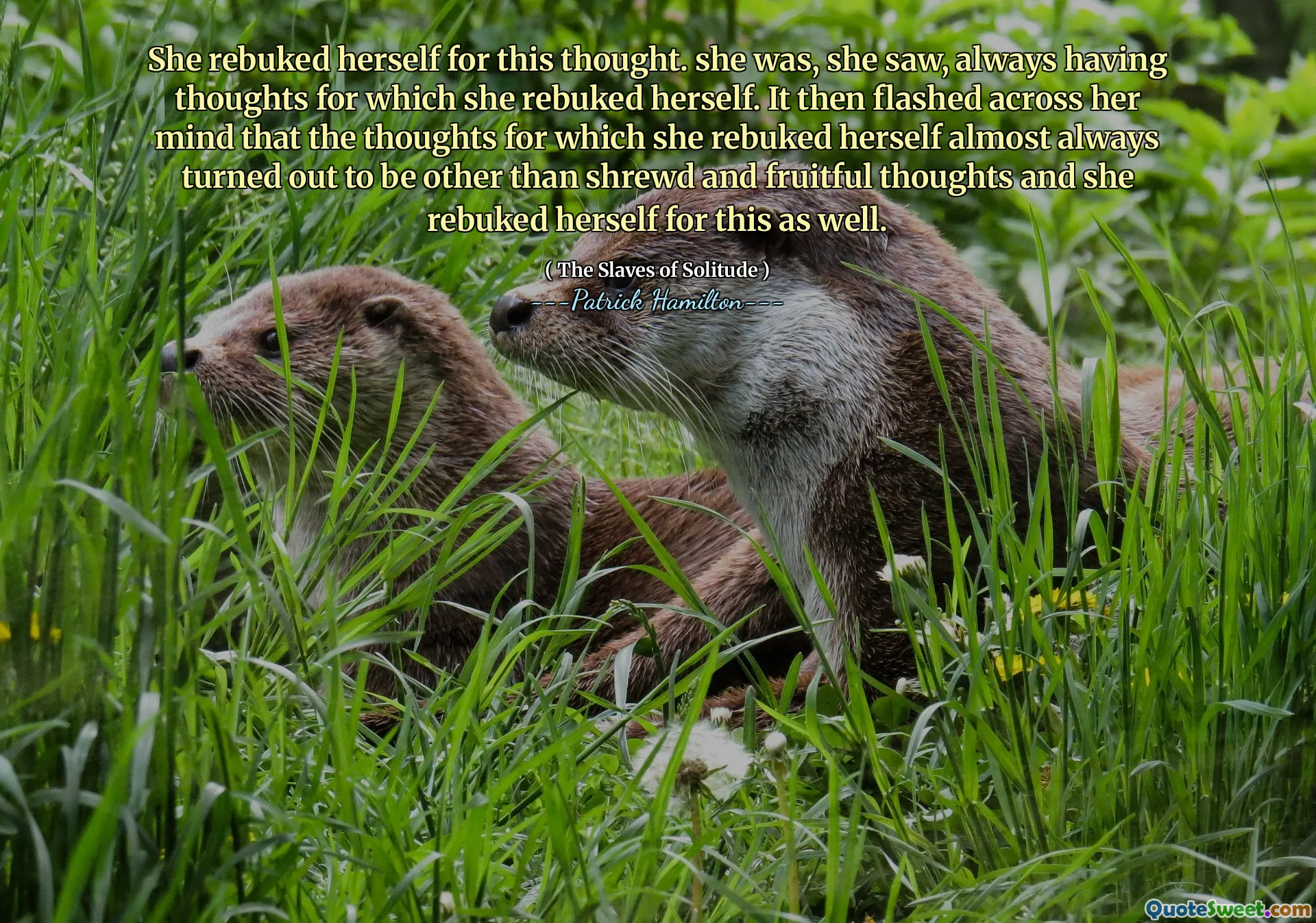
She rebuked herself for this thought. she was, she saw, always having thoughts for which she rebuked herself. It then flashed across her mind that the thoughts for which she rebuked herself almost always turned out to be other than shrewd and fruitful thoughts and she rebuked herself for this as well.
This passage explores the introspective nature of self-criticism and the human tendency toward internal judgment. The protagonist’s perpetual rebuking of her own thoughts depicts a mind characterized by self-scrutiny and moral evaluation. Such a constant state of internal judgment can foster feelings of inadequacy and self-doubt. It reveals an inner conflict—her recognition that most of her critical thoughts are perhaps unwarranted or overly harsh. The humor and poignancy emerge when she acknowledges that her critiques often target thoughts that are neither shrewd nor fruitful, implying that her self-reproach may sometimes be misplaced or excessive. This internal dialogue mirrors a universal human experience: the struggle to maintain a balanced self-view amid a flood of thoughts, judgments, and expectations. The cycle of rebuke highlights how individuals often become trapped in their own mental prisons, battling guilt and self-judgment that may hinder personal growth and peace. This narrative invites us to reflect on the importance of self-compassion, especially when faced with our own inner critic. Recognizing that many of our self-imposed judgments are potentially unreasonable can help in cultivating a kinder, more understanding attitude toward ourselves. The character’s awareness and self-rebuke also emphasize the complexity of inner morality—how we constantly evaluate ourselves, often with an uneasy mix of hope for improvement and frustration at our perceived shortcomings. Such introspection, while sometimes painful, can lead to deeper self-awareness if approached with kindness rather than harshness.


